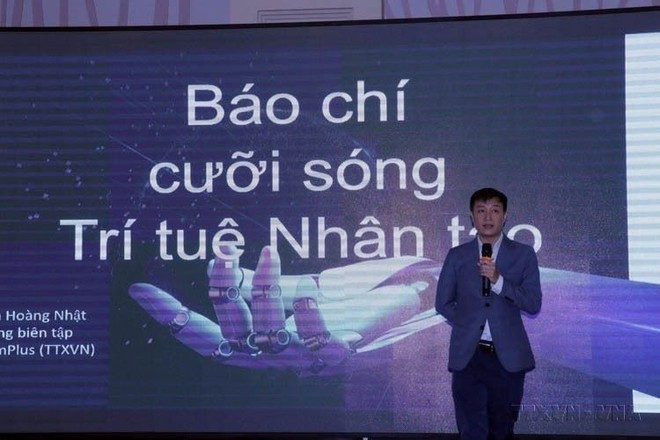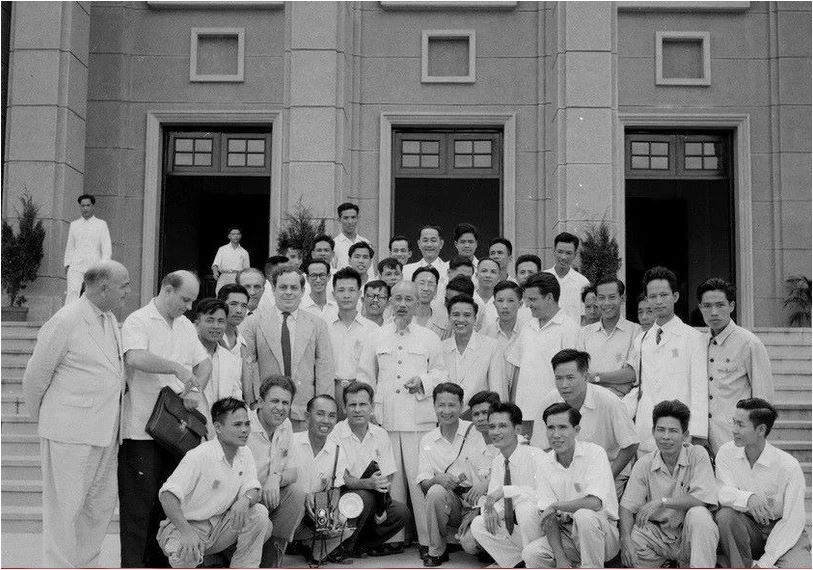Vietnam’s revolutionary press, born in 1925 when Nguyen Ai Quoc, later known as President Ho Chi Minh, founded the Thanh Nien newspaper, has gone a 100-year journey marked by hardships, pride, and constant growth, shaping the nation’s media landscape.
Central to this evolution is the Vietnam Journalists’ Association (VJA), which continues to lead, guid and protect journalists.
A trusted companion of the revolutionary press
Back on April 21, 1950, with the Communist Party of Vietnam and President Ho Chi Minh calling the shots, journalists gathered in Roong Khoa hamlet, Thai Nguyen province, to launch the Association of Vietnamese Journalists, now the VJA. That meet-up was a game-changer, rallying reporters to fuel the fight for independence and freedom with ink and grit.
Since its founding, the VJA has been a steadfast advocate for journalists’ rights, interests and aspirations, ensuring the media serves as a mouthpiece for the Party and State while fostering public dialogue.
During the socialism building in northern Vietnam and the fight for national reunification, the VJA doubled down on professional training and political integrity, cementing its role in building an army of socially responsible journalists.
The VJA has consistently defended journalists’ rights, stepping in when press freedoms face threats and supporting reporters encountering on-the-job challenges. Across its central and local chapters, the association has worked to boost political awareness, technical skills, and ethical standards among its members.
Vietnamese journalists have upheld truth, public service, and accountability, with many risking personal safety to combat corruption, waste, and social injustices. These efforts have strengthened the media’s political role and earned public trust.

To keep pace with global media trends, the VJA has revamped its training, emphasising multimedia skills, specialised reporting, and journalism education. Hot topics like artificial intelligence, digital content management, fact-checking, and data security are now front and centre.
Phan Xuan Thuy, deputy head of the Party Central Committee’s Commission for Information, Education and Mass Mobilisation, noted that said Vietnam’s press has grown in size, political mettle, and technological adaptability, with its output increasingly aligning with global communication standards.
Toward a humanistic, professional, and modern press
As Vietnam approaches the revolutionary press’s centennial on June 21, 2025, coinciding with the end of the VJA’s 11th Congress (2020–2025), the association sees both opportunities and challenges.
Echoing Party General Secretary To Lam’s call for a new era of media that is modern, professional, and deeply rooted in national values, the VJA is tasked with redefining its vision. At its 75th anniversary, Thuy urged the association to streamline operations, matching the Government efforts to cut overlap in socio-political organisations. Under the Vietnam Fatherland Front’s oversight, VJA branches are expected to operate with greater efficiency and impact, he added.
The VJA’s Standing Vice President Nguyen Duc Loi called the back half of 2025 a “sprint” to the finish line. Top to-dos include drafting agenda for the VJA’s 12th National Congress, conducting structural reforms under Resolution 18, beefing up training and professional ethics courses, and enhancing international cooperation and prestige, particularly within ASEAN.
The VJA is also strengthening internal governance to align with Directive 43-CT/TW of the Party Central Committee’s Secretariat, a blueprint for a strong, dynamic, and ethically grounded press, he added./.



















